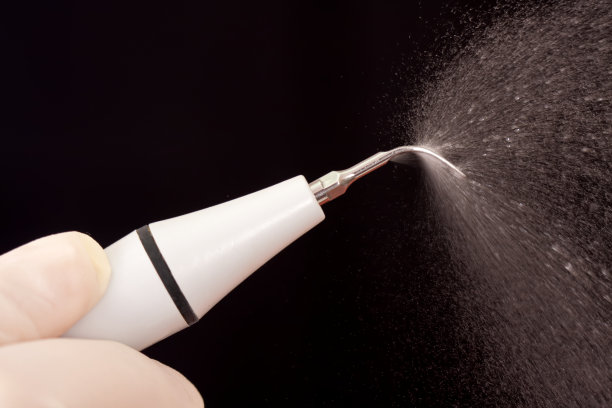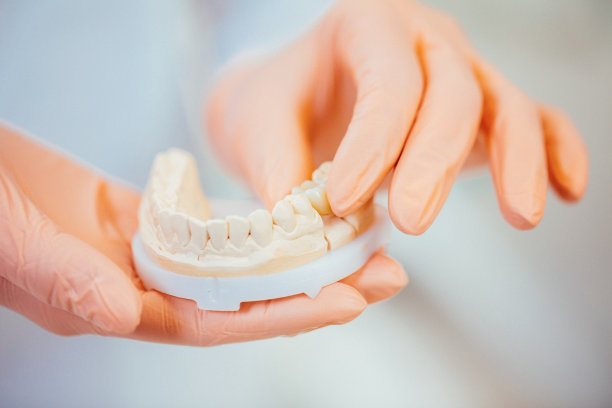Summary: The extraction of a tooth, while often perceived as a last resort, plays a crucial role in maintaining oral health and preventing future dental problems. This article explores the importance of tooth extraction from four perspectives: its necessity in managing severe decay and infection, its role in alleviating crowding and misalignment, its impact on preventing periodontal disease, and the necessity for better overall oral hygiene. Understanding these aspects can guide individuals in making informed decisions regarding their dental health, leading to a healthier and more confident smile.
1. Managing Severe Decay and Infection

Tooth extraction becomes essential when a tooth is severely decayed or infected. In such cases, the bacteria can invade the tooth structure, leading to intense pain, swelling, and even systemic health issues. When conservative treatments like root canals fail or aren’t viable, extracting the compromised tooth can prevent further complications.
Furthermore, leaving an infected tooth untreated can result in the spread of infection to adjacent teeth and gum tissues. Such an unwelcome progression can cause more severe health problems, necessitating additional interventions. Thus, timely extraction protects both the individual’s oral cavity and overall health.
Moreover, removing a damaged tooth can lead to a quicker resolution of pain and discomfort. Patients often find substantial relief once the troublesome tooth has been removed, allowing for a more peaceful recovery and a return to normal activities.
2. Alleviating Crowding and Misalignment
Another critical reason for tooth extraction is to address dental crowding. When there is not enough space in the mouth for all teeth, overlapping and misalignment can occur, leading to aesthetic concerns and difficulties in maintaining oral hygiene. Extracting one or more teeth can create the necessary space to allow for proper alignment.
Orthodontists frequently recommend extractions as part of a comprehensive treatment plan for patients with crowded teeth. This step can enhance the effectiveness of braces or aligners, providing a straighter and more harmonious smile. Achieving optimal alignment not only improves appearance but also enhances the functionality of the bite.
Additionally, by addressing misalignment early, individuals can avoid costly and painful dental treatments in the future. Preventing issues associated with crowded and misaligned teeth is critical for maintaining good long-term oral health.
3. Preventing Periodontal Disease
Periodontal disease, a severe gum infection that can lead to tooth loss, can be linked to the presence of problematic teeth. Extracting teeth that are beyond salvage can reduce the risk of developing or worsening periodontal disease. This is particularly important for patients with a history of gum issues, where compromised teeth can exacerbate existing conditions.
When certain teeth harbor bacteria and contribute to gum inflammation, extraction provides an opportunity for healthier tissues to recover. By removing the source of irritation, it allows for better cleaning and maintenance of oral health.
Preventing periodontal disease is not just about saving teeth; its about preserving bone structure in the jaw. When teeth are lost or affected by periodontal disease, it can lead to bone loss over time. Thus, tooth extraction, when necessary, becomes a proactive approach to maintaining bone health and preventing future complications.
4. Encouraging Better Oral Hygiene
Sometimes, tooth extraction encourages patients to adopt improved oral hygiene practices. A mouthful of diseased or poorly positioned teeth can create insurmountable challenges for patients attempting to maintain good dental hygiene. Once problematic teeth are extracted, it becomes easier to clean the remaining teeth effectively.
Moreover, after extraction, patients often realize how crucial regular dental check-ups and proper oral care are to prevent future dental issues. This newfound awareness can lead to more diligent brushing, flossing, and visiting the dentist regularly, which significantly contribute to overall oral health.
In essence, the removal of problem teeth empowers individuals to prioritize their dental care, establishing habits that can prolong the health of their remaining teeth and gums. The connection between extractions and improved dental hygiene cannot be underestimated.
Summary:
Tooth extraction, though often seen as a negative necessity, plays a key role in maintaining oral health. By effectively managing decay, alleviating crowding, preventing gum disease, and encouraging better hygiene practices, it ultimately serves as a beneficial intervention for many individuals.
By understanding the significance of tooth extraction, individuals can make informed decisions that prioritize their health. Empower yourself with knowledge and seek professional advice when needed for healthier teeth and gums.
This article is compiled by Vickong Dental and the content is for reference only.
Vickong Dental
Vickong Dental is a large medical group established in Hong Kong in 2008 by professors from well-known medical universities in Guangdong and Hong Kong, as well as medical doctors from key national '985' universities (including Master's supervisors and senior professors). The chain of branches brings together expert dentists with PhDs and Master's degrees from Hong Kong and Mainland China, committed to providing high-quality dental treatment.
"Vickong Dental Practices the University Motto of 'Healing and Serving Society,' with a Stable Operation for Sixteen Years. It Has Been honored with Hong Kong Enterprise Leaders's Choice,' and is a Global Trusted Implant Center for the Nobel Implant System. Recommended by Hong Kong Metro Broadcast and Guangdong Television, it Serves Customers from Over Thirty Countries and Regions, Gaining the Trust and Favor of Citizens from the Guangdong-Hong Kong-Macau Greater Bay Area and Surrounding Cities.

Thousands of customers' unanimous praise
The most recognized and highly recommended dental service by customers in the Guangdong-Hong Kong-Macau Greater Bay Area
We Ensure You Receive Detailed Care and Attention Here
Hong Kong standards, Shenzhen prices, Your Trusted English-speaking dentists

Vickong Dental Medical-Grade Instrument Disinfection Process
Vickong Dental Medical-Grade Instrument Disinfection Process

Vickong Dental Chain: A Warm and Comfortable Environment for Treatment






Appointment Hours

Q&A
Why choose Vickong Dental?
Vickong Dental practices the university motto 「Medicine to Benefit Society」, with each branch bringing together highly qualified dentists with doctoral and master’s degrees from Hong Kong and the Mainland, and has maintained seventeen years of steady operation。Recipient of 「2024 Hong Kong Enterprise Leaders Brand」, 「2025 Hong Kong Enterprise Leaders Brand」, a Nobel Biocare Global Trusted Implant Center, and a brand recommended by Metro Radio Hong Kong and Guangdong TV。
To date, we have served customers from more than thirty countries and regions,earning exceptionally high word-of-mouth recognition and trusted recommendations from residents across the Guangdong-Hong Kong-Macao Greater Bay Area and surrounding cities
We have eight major branches in Zhuhai、Shenzhen,and a consultation and service assurance center in Hong Kong,so you can book a free consultation at any time for any questions,which is very reassuring.
If I do not accept the quotation after the CT scan, will I be charged??
No! As long as the actual treatment has not started, you will not be charged any fees.
Will there be any additional charges during the treatment process?
No, there won’t be any additional charges. Before treatment begins, we will clearly explain the treatment plan and its corresponding fees. Only after the patient agrees and signs the consent form will we proceed with the dental service.
Can I pay in Hong Kong dollars?
Yes. Vickong Dental accepts payment in Hong Kong dollars. The amount will be converted based on the exchange rate of the day, and the applicable rate will be clearly communicated to you in advance.
Can I reschedule my appointment at any time?
Yes. Please contact us via **WeChat** or **WhatsApp** as early as possible, providing your original appointment time and details, along with your preferred new date and time slot for rescheduling.













